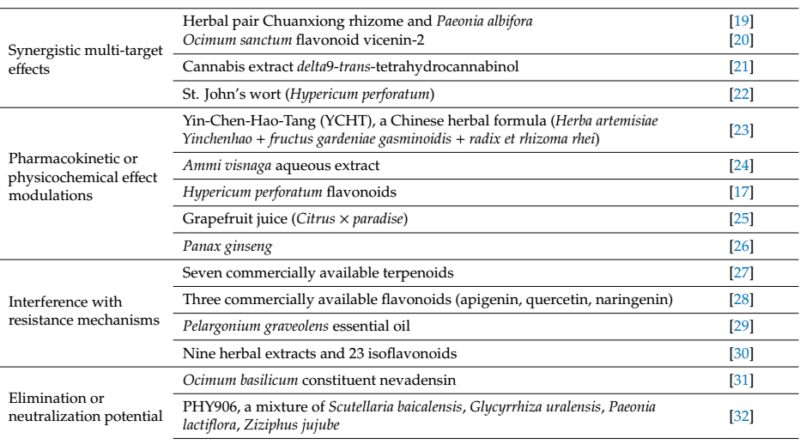SYNERGISTIC EFFECTS OF PHYTOTHERAPEUTICS AND CONVENTIONAL CHEMOTHERAPEUTICS: FOCUS ON CANCER
The complex and multifactorial aetiology of oncological diseases makes multi-drug therapy of particular interest. In fact, the use of drugs with different mechanisms of action makes anticancer therapy particularly effective, since it is able to interfere with the multiple biochemical and molecular targets in the tumor cells. In this perspective, products of plant origin (or phytotherapic) can act in synergy with conventional anticancer drugs, producing higher pharmacological effects than those obtained simply by adding the effects of the two substances administered simultaneously. In addition to the ‘multitarget’ mechanism described above, other mechanisms involved in synergistic interactions are linked to changes in the metabolism (pharmacokinetics) of the drug or interference with the compex chemo-resistance mechanisms of tumor cells. However, in the face of numerous scientific evidence of a preclinical nature based on in vitro and in vivo (on animal models) studies, clinical studies on humans are still few, especially those of high quality such as randomized clinical trials.
In table: examples of mechanisms involved in phytotherapeutic-anticancer drug synergy.
REFERENCE TO A WEBSITE OR TO A LINK
Raffaele Pezzani, Bahare Salehi, Sara Vitalini, Marcello Iriti, Felipe Andrés Zuñiga, Javad Sharifi-Rad, Miquel Martorell, and Natália Martins. Synergistic effects of plant derivatives and conventional chemotherapeutic agents: An update on the cancer perspective. Medicina 55, n°. 4 (2019): 110. DOI: https://doi.org/10.3390/medicina55040110.

